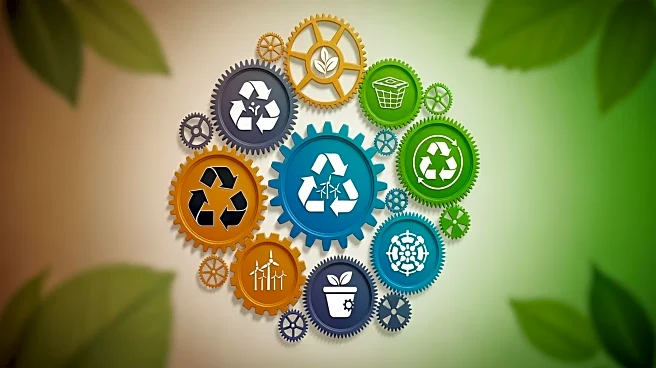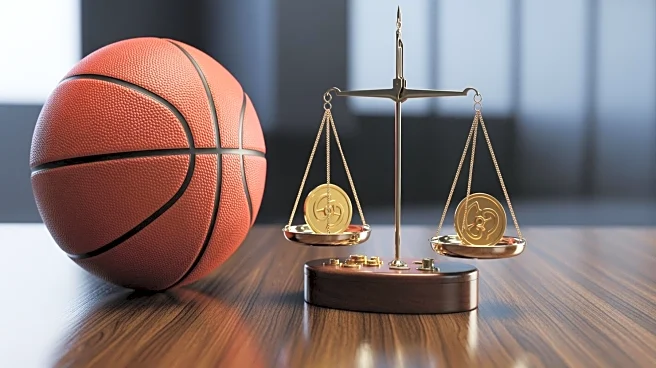What's Happening?
The concept of a circular economy is gaining traction as a transformative approach to production, consumption, and resource management. This paradigm shift challenges the traditional 'take-make-dispose'
systems by promoting efficiency and sustainability through new business models, cultural practices, and governance mechanisms. The research collection invites studies that delve into the governance, institutional, and socio-economic aspects of circular economy and sustainable resource management. The focus is on integrating circularity into industrial systems, cities, and communities globally, highlighting the complexities involved in scaling these transitions.
Why It's Important?
The circular economy represents a significant shift in how resources are managed, with potential impacts on economic, environmental, and social systems. By moving away from linear consumption patterns, industries can reduce waste, conserve resources, and minimize environmental impact. This approach not only supports sustainability but also offers economic benefits through innovative business models and practices. As global challenges like climate change and resource scarcity intensify, the circular economy provides a viable pathway for sustainable development, influencing policy-making and corporate strategies worldwide.
What's Next?
Future research and policy development will likely focus on overcoming the economic, social, and political challenges associated with implementing circular economy practices at scale. Stakeholders, including governments, businesses, and communities, are expected to collaborate on creating frameworks that support circular transitions. This may involve developing incentives for sustainable practices, investing in technology and infrastructure, and fostering cultural shifts towards sustainability. The ongoing dialogue and research will be crucial in identifying effective strategies for integrating circular economy principles into various sectors.
Beyond the Headlines
The circular economy not only addresses environmental concerns but also has ethical and cultural implications. It encourages a shift in consumer behavior towards more responsible and mindful consumption, fostering a culture of sustainability. Additionally, it raises questions about equity and access, as the benefits of circular practices must be distributed fairly across different communities and regions. Long-term, the circular economy could redefine societal values around consumption and resource use, promoting a more harmonious relationship with the environment.










